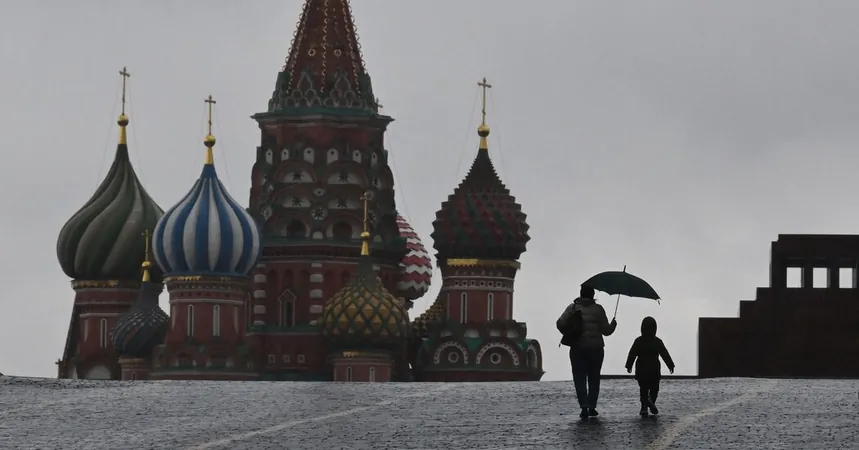
Russia's Controversial Move to Ban Child-Free Advocacy Amidst Declining Birthrates
2024-11-12
Author: Jessica Wong
Legislative Action on Child-Free Advocacy
In a surprising legislative move, Russian lawmakers have voted to ban the advocacy of child-free lifestyles in an effort to tackle the nation’s declining birthrate and promote traditional values amidst what they describe as a decadent West. This decision highlights the Kremlin's urgent response to a demographic crisis that has seen deaths outnumber births since 2016.
Details of the Ban
The State Duma, the lower house of Parliament, passed the bill with unanimous support, making any “propaganda” that encourages individuals to choose not to have children illegal. This ban extends across various media platforms, including the internet, films, and advertisements, portraying child-free living as an attractive option. Individuals caught violating this new law may face fines of up to $4,000, while organizations could incur penalties as hefty as $50,000.
Kremlin's Stance on Demographics
Kremlin spokesperson Dmitri Peskov emphasized the seriousness of the demographic challenge facing Russia, remarking, "Everything that needs to be done to increase birthrates must be done, and everything that obstructs that must disappear from our lives." This aligns with President Vladimir Putin’s broader agenda to reinforce what the state considers traditional family values.
Adoption Measures and Ideological Concerns
In addition to this bill, lawmakers also voted on a separate measure that would prevent Russian children from being adopted by citizens from countries where gender transitions are legal, further illustrating the Kremlin's increasing alignment of demographic issues with ideological battles against the West. Vyacheslav Volodin, the head of the Duma, echoed concerns over Western policies concerning children, asserting that "the West's policy toward children has been ruinous."
Demographic Statistics
The backdrop of this legislative action is a grim statistic: Russia's population is in decline, with ongoing demographic challenges stemming from the post-Soviet era and exacerbated by factors such as the COVID-19 pandemic and the war in Ukraine. The national population stands around 145 million, a figure that has shrunk since the dissolution of the USSR in 1991. Demographic experts, like independent demographer Alexey Raksha, predict a further decline, estimating that Russia’s population could decrease by approximately 500,000 in the coming year.
Fertility Rates and Child-Free Choices
Interestingly, while Russian fertility rates are higher than many developed nations, the trend of women choosing not to have children has been relatively low; only 2.4% of women and 3.5% of men expressed a desire to remain child-free, according to 2022 statistics from the Russian state. Despite the government's insistence that erasing child-free advocacy will boost birthrates, Raksha and other experts argue that this political gesture will likely have minimal real-world impact on demographic trends.
Cultural and Political Implications
As the Kremlin portrays itself as a defender of family values against Western ideologies, the implications of this ban bring forth a complex interplay of politics, culture, and human rights. Critics question whether these measures genuinely address the root causes of Russia's demographic crisis—or whether they are simply a façade to distract from deeper societal issues.
Conclusion: The Larger Crisis
In a country at a demographic crossroads, one must wonder: can law changes alone reverse the trend of population decline, or is the Kremlin's battle against child-free advocacy merely a symbolic gesture in the face of a much larger crisis?



 Brasil (PT)
Brasil (PT)
 Canada (EN)
Canada (EN)
 Chile (ES)
Chile (ES)
 España (ES)
España (ES)
 France (FR)
France (FR)
 Hong Kong (EN)
Hong Kong (EN)
 Italia (IT)
Italia (IT)
 日本 (JA)
日本 (JA)
 Magyarország (HU)
Magyarország (HU)
 Norge (NO)
Norge (NO)
 Polska (PL)
Polska (PL)
 Schweiz (DE)
Schweiz (DE)
 Singapore (EN)
Singapore (EN)
 Sverige (SV)
Sverige (SV)
 Suomi (FI)
Suomi (FI)
 Türkiye (TR)
Türkiye (TR)